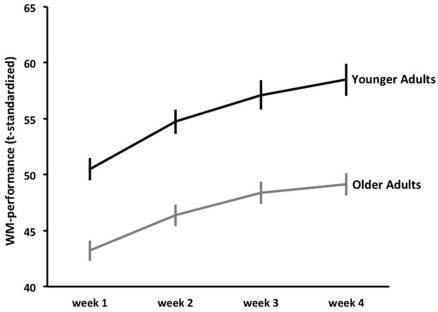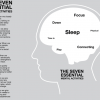I'm starting this thread to investigate strategies for positively modulating or improving fluid intelligence. This is different from learning and memory. How So? Let's ask Wikipedia:
http://en.wikipedia....id_intelligence
Fluid intelligence or fluid reasoning is the capacity to think logically and solve problems in novel situations, independent of acquired knowledge. It is the ability to analyze novel problems, identify patterns and relationships that underpin these problems and the extrapolation of these using logic. It is necessary for all logical problem solving, especially scientific, mathematical and technical problem solving. Fluid reasoning includes inductive reasoning and deductive reasoning.
And Dual-n-Back is mentioned as a way to improve fluid intelligence.. This is very very familiar territory arorund here.
In a controversial study, Susanne M. Jaeggi and her colleagues at the University of Michigan, found that healthy young adults who practiced a demanding working memory task (dual n-back) approximately 25 minutes per day for between 8 and 19 days, had statistically significant increases in their scores on a matrix test of fluid intelligence taken before and after the training than a control group who did not do any training at all. [Jaeggi, Susanne M.; Buschkuehl, Martin; Jonides, John; and Perrig, Walter J. (2008). "Improving fluid intelligence with training on working memory." PNAS- Proceedings of the National Academy of Sciences]
A second study conducted at the University of Technology in Hangzhou, China, supports Jaeggi's results independently. After student subjects were given a 10 day training regime based on the dual n-back working memory theory, the students were tested on Raven's Standard Progressive Matrices. Their scores were found to have increased significantly. [Qiu Feiyue; Wei Qinqin (2010). "Study on Improving Fluid Intelligence through Cognitive Training System Based on Gabor Stimulus" Information Science and Engineering]
For the record, I can get 80% on D3B and 40% on D4B with only a little practice.
Great.. But....... I think I can do better. Let's examine the science.
The problem with studying fluid intelligence is that mice don't have a whole lot of it. So most of the research has been using humans doing tests with functional MRIs trying to figure out what's going on in their brains.
http://www.ncbi.nlm....pubmed/22745498
A lateral prefrontal cortex (LPFC) region's activity was found to predict performance in a high control demand working memory task and also to exhibit high global connectivity. Critically, global connectivity in this LPFC region, involving connections both within and outside the frontoparietal network, showed a highly selective relationship with individual differences in fluid intelligence.
A special case of superior fluid intelligence occurs in austic savants. What's going on here?
http://www.ncbi.nlm....pubmed/18646626
On the other hand, the reduced inter-regional collaboration could lead to a disinhibitory enhancement of neural activity and connectivity in local cortical regions. In addition, enhanced connectivity in the local brain regions is partly due to the abnormal organization of the cortical network as a result of developmental and pathological states. This enhanced local connectivity results in the specialization and facilitation of low-level cognitive processing.
So we are talking about development of cortical networks. Increasing connectivity could be the mechanism that might provide something.
http://en.wikipedia....efrontal_cortex
It is also widely believed that the size and number of connections in the prefrontal cortex relates directly to sentience, as the prefrontal cortex in humans occupies a far larger percentage of the brain than any other animal. And it is theorized that, as the brain has tripled in size over 5 million years of human evolution,[30] the prefrontal cortex has increased in size sixfold.[31]
Sentience... That's neat stuff.
Anyway.. Laying the groundwork for this thread here... Will follow up with more research.
Edited by abelard lindsay, 06 July 2012 - 04:52 AM.























































